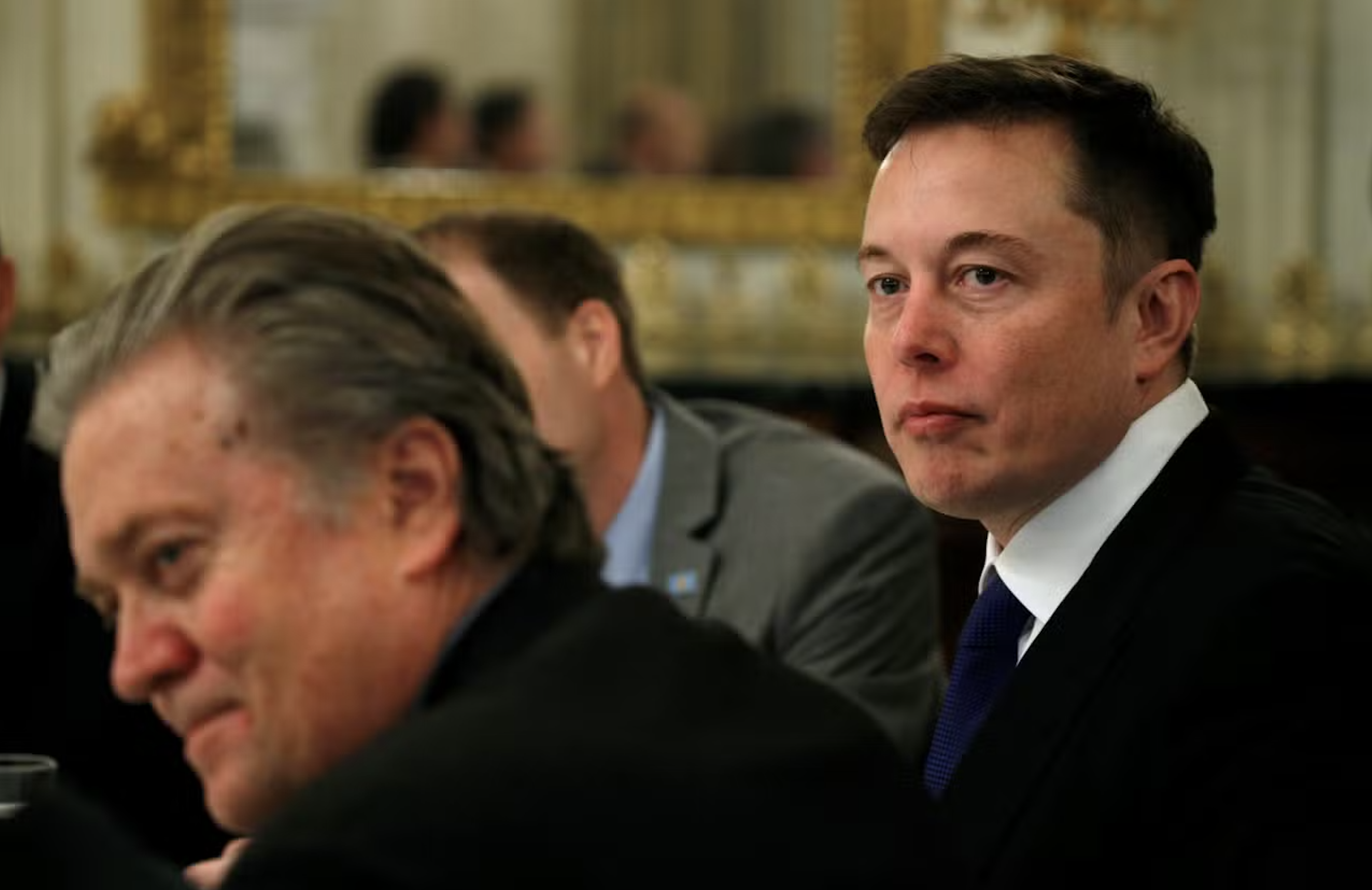Here’s a headline I didn’t think we’d see: Steve Bannon, the far-right media mastermind and former Trump adviser, going after Elon Musk, one of Trump’s richest and loudest supporters. But is this just another political spat—or something bigger?
Let’s break it down.
Musk vs. MAGA: A collision course
Musk, the South African-born tech billionaire behind Tesla, SpaceX, and X (formerly Twitter), has been a key figure in Trump’s camp, throwing hundreds of millions of dollars behind his re-election campaign. But his support for H-1B visas—which allow companies like his to hire highly skilled foreign workers—has put him at odds with MAGA hardliners like Bannon.
Bannon didn’t hold back. In an interview with the Corriere della Sera, as republished by Breitbart, he called Musk “truly evil” and accused him of trying to create “techno-feudalism on a global scale.” He even went as far as to say Musk should “go back to South Africa.”
The PR fallout—or lack thereof
Musk’s image as a tech visionary and disruptor is part of his brand appeal, but being labeled “evil” by a key MAGA figure isn’t exactly ideal PR. For Tesla and SpaceX, whose reputations are closely tied to Musk, these political dramas could spill over into consumer sentiment. And for X, the platform Musk owns, the fallout raises questions about how political infighting might affect its position as a hub for free speech.
But here’s the thing: Musk—and likely Trump—might not care at all. Both are known for brushing off criticism and ploughing ahead with their agendas. Bannon’s remarks, while fiery, might barely register on their radar. This indifference could render Bannon’s comments ineffective, potentially sidelining him from the very narrative he’s trying to control.
Bannon’s media play
Bannon’s attack isn’t just about Musk’s immigration stance—it’s a fight for control of the MAGA narrative. His comments, amplified by platforms like Breitbart and his War Room podcast, show his skill in shaping messaging for his base. For media and marketing professionals, it’s a reminder of how critical storytelling and audience alignment are in any campaign.
But with Musk and Trump likely to ignore him, Bannon’s relevance in this saga may be more limited than it appears.
What does this mean for the media and marketing industries?
This feud offers key lessons for media and marketing professionals:
• Reputational risks are real: CEOs like Musk, who double as public figures, carry significant risks for the brands they represent. Marketers need to carefully evaluate these associations.
• The power of messaging: Bannon’s ability to weaponise media shows the importance of clear, targeted storytelling. But even powerful messages can falter without an engaged audience.
• Platforms aren’t neutral: Musk’s ownership of X positions him as a major player in public discourse, but that visibility comes with high stakes for advertisers.
Where do we go from here?
The Musk vs. Bannon saga is far from over. But with Musk and Trump likely to continue on their paths undeterred, the question is whether Bannon’s critique will have any lasting impact—or simply fade into the background noise.
For now, it’s a fascinating case study in politics, power, and PR that marketers and media professionals should keep an eye on.
So, what do you think? Is this a cautionary tale about the dangers of mixing business and politics—or just another day in the unpredictable world of Elon Musk? Let’s keep the conversation going.
